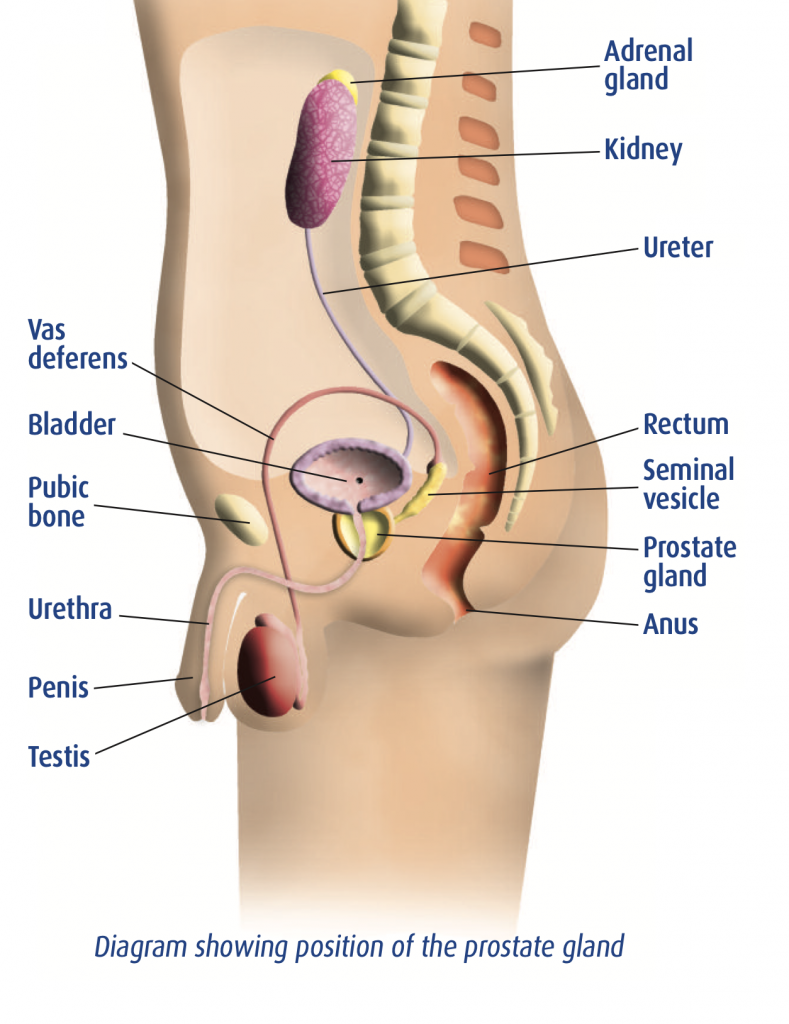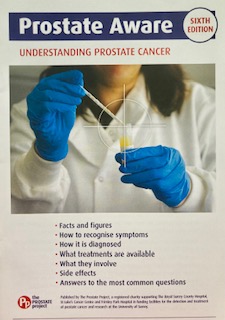Help Us Fight Prostate Cancer
What is the Prostate
The prostate is a walnut size gland located deep in the pelvis just below the bladder.
The tube draining the bladder, called the urethra, passes through the centre of the prostate to the penis. The prostate is found only in men. It is an essential part of the reproductive system as, along with the seminal vesicle, it helps make nutrients in the form of semen for the sperm. The sperm travels from the testicles to the urethra, where it combines with semen from the seminal vesicles and the prostate.
The prostate gland enlarges after puberty stimulated by rising levels of testosterone, the male hormone. This can sometimes cause problems later in life as a result of a condition called benign prostatic hyperplasia (BPH) where the urethra is squeezed by the prostate. This may lead to difficulties with urination (especially at night), more frequent urination and on occasion other symptoms.
BPH is different from prostate cancer, although it can share similar symptoms. Treatments available for this non-cancerous problem include drugs to shrink or relax the gland. If symptoms are severe or persist, various surgical options are available to remove prostate tissue or lift and hold it away from the urethra, thus relieving the pressure.

What if I am trans, non-binary or intersex?
If you are a trans, non binary or an intersex person, who was assigned male at birth, you will still have a prostate. Even if you have had genital gender-affirming surgery as part of your transition.
Prostate Cancer UK has some excellent advice about trans women and prostate cancer
If you are a trans man, who was assigned female gender at birth, you will not have a prostate, even if you have had genital gender-affirming surgery. The good news is that you are not at risk of developing prostate cancer.
Prostate Cancer
Prostate cancer is a condition where the cells within the prostate begin to divide and grow in an uncontrolled manner and form tumours.
Precisely why this happens is not clear. We do know that risk may be increased where there is a family history of the disease or of breast cancer; and there is an increased risk if you are Afro-Caribbean.
Prostate cancer is relatively unusual in men under 50 but by the age of 60 significant numbers of men will have developed some evidence of the disease, with most diagnoses occurring between the ages of 60 and 80. In fact almost all men will have prostate cancer by the age of 80. A diagnosis is not necessarily of immediate concern as most cancers grow very slowly and may cause no harm during a man’s natural lifespan. However, some are more aggressive and the earlier they are discovered the better.
If the cancer is localised, meaning it is contained within the gland, there is a wide range of treatment options and a better than 80% chance of a complete cure.
If the cancer spreads (metastasises) to other areas of the body, it is said to be advanced and, although not curable, many cases can be controlled with appropriate treatment. It is therefore crucial to detect the disease at as early a stage as possible.
What You Should Know About Your Risks
There are some things that may mean men are more likely to get prostate cancer – these are called risk factors. There are three main risk factors :
Early Prostate cancer often doesn’t have any symptoms, so be aware of the risks and get a PSA Test.
If caught early, it is usually curable.
With thanks to our friends at K2 Consultancy, this 90 second animation shouts the “Get Tested” message:
Symptoms Requiring Action
Prostate cancer is diagnosed by using the prostate specific antigen (PSA) test, biopsies and physical examinations. There can be few symptoms of prostate cancer in the early stages, and because of its location most symptoms are linked to urination. However, such symptoms are often associated with non-cancerous conditions such as an enlarged prostate, prostatitis (inflammation of the prostate) and urinary infection. Men with prostate cancer can also live for decades without symptoms or needing treatment because the disease often progresses very slowly.
It is vital that prostate cancer is caught early and before it has spread beyond the prostate, as the cure rate is high – up to 90%. But in about 10 per cent of cases it has already spread to other organs by the time it is picked up, after which a cure is normally not possible.
Treatment for these men simply aims to slow tumour growth with chemotherapy, or by reducing levels of testosterone, a hormone that helps prostate cancer cells to grow.
Because early prostate cancer is usually symptomless, all men who have these risk factors should talk to their GP about having a simple PSA blood test,

